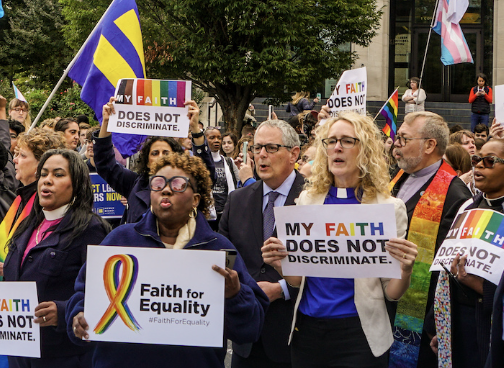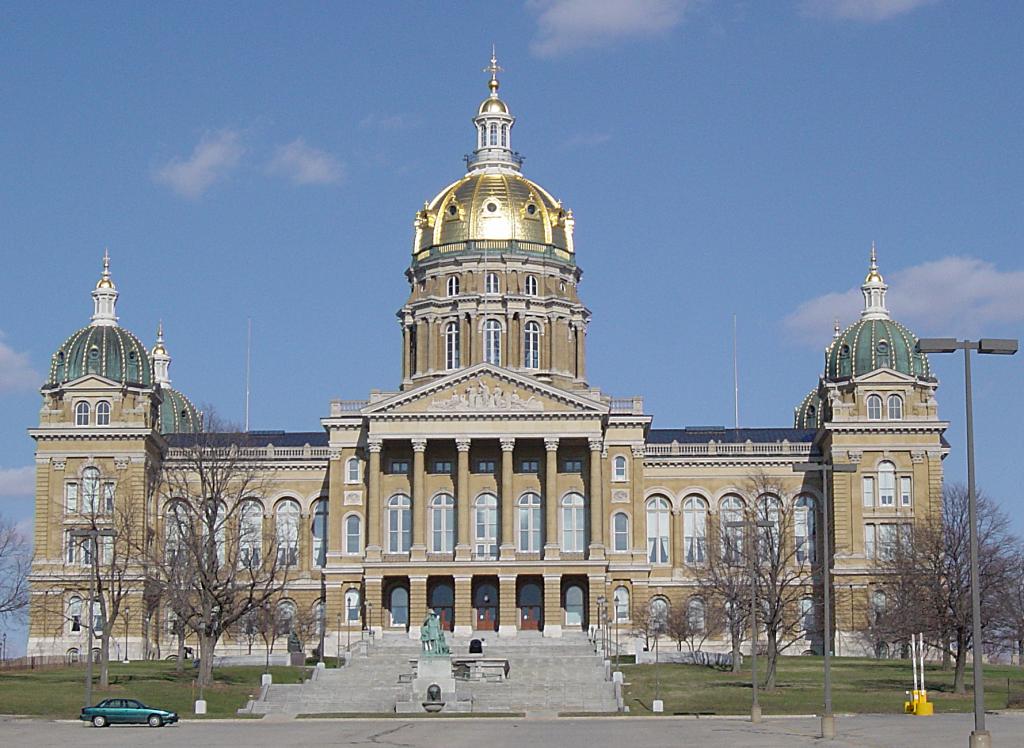I am a Christian. I am one of those humans who loves Jesus, goes to church and church camp, follows the Bible, and does all of the other God-related activities that one might assume takes place in a Christian’s life. I am a kind, loving-of-all-people person, and because of how my culture has treated certain groups of society, that fact about myself is one of the biggest shocks of all. I am a Christian, and those four words alone can spark feelings of love and admiration or disgust and hate, and that divide is detrimental to religion and society alike.
Christianity today is full of grey area. Looking at the 1,200 pages of the Bible translated multitudinous times in numerous languages leads to misinterpretation left and right. What one church deciphers as a certain meaning could be the exact opposite as the one not a block away. In theory, this wouldn’t create as big of a problem as it does. Why would the deduction matter if the morals of the people practicing the religion are the same or if everyone had a general understanding of the Bible’s main teachings? The problem is that they don’t, and that’s where issues arise.
Christianity is a religion full of all stereotypes. For some, it is a genuine shock to find out I am a Christian since I try to be the kindest person I can, and that directly goes against what they made us out to be. For others, they see me as “not a real Christian” because of the way I view human rights. We are a country that has been separated by something that should be unifying, and in my mind, it really all boils down to one verse: “Thou shalt love the Lord thy God with all thy heart, and with all thy soul, and with all thy mind. This is the first and great commandment. And the second is like unto it, Thou shalt love thy neighbour as thyself” (Matthew 22:37-39). In translation, love God then go out and love as many people as one can. Many of the assumptions, negative and positive, would be cleared up if every Christian wholeheartedly, faithfully, and truly followed that phrase. Loving one’s neighbor is quite simple in that it does not matter who they are, where they come from, or what their background is, but one loves first. I don’t see much of that anymore.
Hate is spewed left and right by the same ones who say they follow Jesus’s teachings. A person will go up to others who are simply loving who they want to love and tell them that they are going to burn in Hell, will spit on them, verbally and physically assault them, and then make their way to church the next Sunday and be told how perfect of a human they are. There, they are praised for their actions, as it is seen as somehow “saving” these people. The cycle repeats itself until eventually, those who are a part of the LGBTQ+ community won’t touch churches with a ten-foot pole. According to Public Discourse, the percentage of Americans who identify as Christian has dropped from 75% to 65%, and the percentage of people who don’t believe in any religion has grown from 17% to 26%. With this I ask, how is this helping? How is turning others away from “a religion that saves” solving issues? In my mind, the answer is it’s not. It is not helping, it is not saving, it is not purifying, rather it is harming the already delicate social climate we live in.
The world today is seeing more divide than ever before. Families are being torn apart, the political climate is brutal, and we are all bearing witness to a country of what I think Jesus would be super disappointed in. In general, we are not kind, we are not compassionate, and we do not have the backs of people who need them most. We are failing, but we can come together and do better. We can do as Jesus does. Jesus loves first, and so should we.















